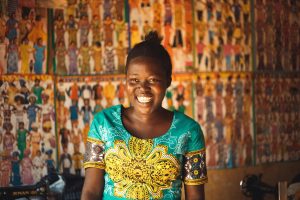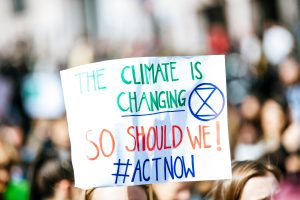Author: Alamin Lawal
Textbooks provide us with scientific knowledge, and technology drives forward innovation. Yet, in our pursuit of solutions, we often neglect a vital component: indigenous wisdom. For countless generations, communities living in harmony with their environments have embedded resilience into their daily lives, adapting to an ever-changing world through time-honored traditions. Can these age-old practices offer guidance in an age of unprecedented climate disruption? The answer does not rest in abandoning our current knowledge but in rekindling the forgotten wisdom that has the power to revolutionize our approach to tackling climate change.
The Earth’s climate is undergoing rapid and unprecedented changes, primarily due to the increase in greenhouse gas emissions resulting from various human activities. This phenomenon disrupts established weather patterns, exacerbates the frequency and severity of extreme weather events, and causes significant alterations in ecosystems, affecting communities on a global scale. For indigenous peoples, who have been the caretakers of their lands for countless generations, the repercussions are even more profound. Their existence and cultural heritage are intricately tied to the natural environment, rendering them exceptionally vulnerable to these climatic shifts. However, these adversities do not diminish their resilience; rather, they face and adapt to these challenges by relying on the vast reservoir of indigenous knowledge. This body of wisdom, meticulously passed down from one generation to the next, offers unparalleled insights into local ecosystems, weather phenomena, and sustainable resource management practices, thereby providing these communities with essential tools for coping with and adapting to the evolving climate.
Consider the Maasai people of Kenya, who possess an in-depth understanding of animal behavior, which allows them to identify early signs of drought and subsequently modify their grazing practices to protect and sustain their pastures. In the lush Amazon rainforest, the Yanomami tribe has developed “Integrated Gardens,” intricate agroforestry systems that replicate the region’s natural biodiversity. These systems are crucial for ensuring food security, maintaining soil fertility, and adapting to fluctuating rainfall patterns. Additionally, the practice of traditional storytelling by elders plays a vital role in linking past climate events with effective adaptation strategies, thereby transferring invaluable historical knowledge to future generations.
A looming threat persists, characterized by the erosion of cultural heritage, insufficient documentation of valuable knowledge, and the ever-present menace of climate change. To counteract these challenges, we must act with urgency, championing the recognition and respect of indigenous land rights, supporting efforts to meticulously document indigenous wisdom, and engaging in meaningful collaboration with these communities. As Chief Oren Lyons aptly stated, “Indigenous knowledge is more than just knowledge; it’s our essence and livelihood.” By safeguarding and valuing indigenous knowledge, we can come together in our quest for a sustainable, healthy, and equitable future for everyone.



